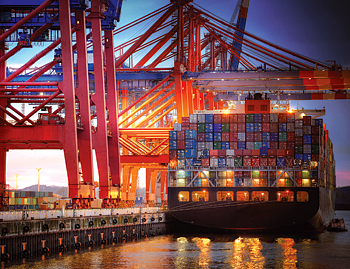INDIAN ARMED FORCES CHIEFS ON OUR RELENTLESS AND FOCUSED PUBLISHING EFFORTS

The insightful articles, inspiring narrations and analytical perspectives presented by the Editorial Team, establish an alluring connect with the reader. My compliments and best wishes to SP Guide Publications.

"Over the past 60 years, the growth of SP Guide Publications has mirrored the rising stature of Indian Navy. Its well-researched and informative magazines on Defence and Aerospace sector have served to shape an educated opinion of our military personnel, policy makers and the public alike. I wish SP's Publication team continued success, fair winds and following seas in all future endeavour!"

Since, its inception in 1964, SP Guide Publications has consistently demonstrated commitment to high-quality journalism in the aerospace and defence sectors, earning a well-deserved reputation as Asia's largest media house in this domain. I wish SP Guide Publications continued success in its pursuit of excellence.
- Indian Air Force Aims for Full Indigenous Inventory by 2047 — Air Chief Marshal A.P. Singh
- General Upendra Dwivedi takes over as the Chief of the Army Staff
- Rajnath Singh assumes charge as Defence Minister for the second consecutive term
- Admiral Dinesh K. Tripathi assumes Command of the Indian Navy as 26th Chief of the Naval Staff
- Prime Minister witnesses 'Bharat Shakti' – a Tri-Services Firing and Manoeuvre Exercise in Pokhran, Rajasthan
Supply chain security essential to smooth global trade

Rapid globalisation has presented nations with an abundance of economic opportunities. The international trading system, which comprises transport and logistics systems for the world’s cargo and commercial trade, is a key driver of global economic growth, and innovation. Due to its lucrative nature, cargo and commercial trade supply chains are highly susceptible to threats such as terrorism, piracy, theft and illicit trade. Illicit trade in particular is a global threat that undermines governments, manufacturers, retailers and consumers. The phenomenon has grown to an unprecedented level, posing tremendous risks to society and the global economy, accounting for anywhere between $1 trillion and $2 trillion every year.
One of the keys to combating illicit trade and ensuring the security of supply chains lies in innovative security solutions and enhanced collaborative action between governments, the law enforcement community, the private sector and consumers. Illicit trade in illegal and smuggled goods are a particular concern to country governments because of the direct consequences on public’s safety and health, the loss of legitimate revenue opportunities for governments, and due to the links with organised crime and subversive groups. In order to combat this evolving crime trend Interpol established its dedicated ‘Traffic in Illicit Goods and Counterfeit Directorate’, to directly address this problem, through which Interpol coordinates operations with the law enforcement partners and authorities of its member countries.
The United States has laid emphasis on securing the global supply chain. It states that while ensuring its smooth functioning, is essential to national security and economic prosperity. This vital system provides the goods that feed the domestic critical infrastructures and support way of life. Other nations worldwide also rely upon the goods transported by the global supply chain system – in that sense it is a truly global asset that all stakeholders must collaboratively work to strengthen.
As a number of recent events have shown us, the global supply chain is dynamic, growing in size and complexity, and is vulnerable to a host of threats and hazards such as natural disasters, accidents, or even malicious attacks. A common approach, involving the range of stakeholders with supply chain roles and responsibilities, is necessary. The US strategy is focused on the worldwide network of transportation, postal, and shipping pathways, assets, and infrastructures (including communications and information infrastructures) is an important step forward. It provides strategic guidance to departments and agencies within the US Government and identifies our priorities to stakeholders with whom we hope to collaborate going forward.
The strategy establishes two goals. The first is to promote the efficient and secure movement of goods and the second is to foster a global supply chain system that is prepared for and can withstand evolving threats and hazards, and rapidly recovery from disruptions. It is guided by two overarching principles established in the strategy. First, to galvanize and integrate efforts across the US Government and with other key stakeholders. And second, to continue and enhance risk management efforts. The strategy also identifies a number of priority areas upon which the department’s will focus on immediate implementation efforts. Similarly, other developed countries have outlined their supply chain strategies to safeguard against criminal activities.
Frost & Sullivan research found that the global maritime security market size was $13.1 billion in 2012, and is expected to increase to $20.2 billion by 2021. The intelligence, surveillance and reconnaissance segment will contribute more than 50 per cent to this market by 2021. Since 2012, Interpol has supported cross-border regional operations to fight illicit trade in all corners of the world, which has resulted in the seizure of illegal and counterfeit goods worth approximately $550 million.





